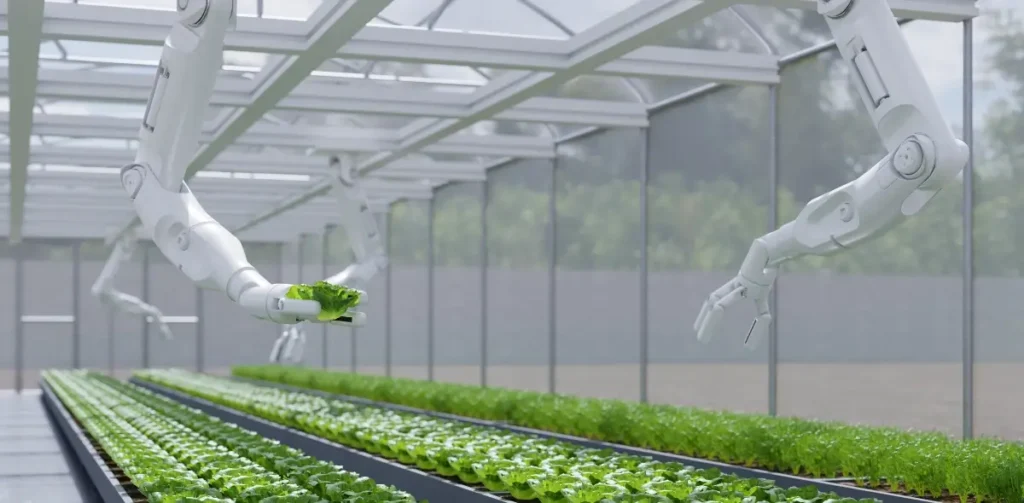Cultivating Tomorrow
In the ever-evolving landscape of agriculture, integrating Internet of Things (IoT) technology has emerged as a game-changer, revolutionizing traditional farming practices. This article explores the diverse applications of IoT in precision agriculture, the array of innovative farming technologies and devices, the sustainable benefits IoT brings to the agricultural sector, case studies showcasing successful IoT implementations in farming, and glimpses into the future possibilities and innovations that IoT holds for agriculture.
Applications of IoT in Precision Agriculture
Precision Crop Monitoring:
IoT sensors and drones enable real-time monitoring of crop conditions, providing farmers with invaluable data on factors like soil moisture, temperature, and nutrient levels.
Livestock Management:
Wearable IoT devices for livestock tracking and health monitoring empower farmers to optimize feeding schedules, detect diseases early, and enhance overall herd management.
Automated Irrigation Systems:
IoT-driven irrigation systems use data analytics to optimize water usage based on weather forecasts, soil moisture levels, and plant needs, promoting water conservation.
Smart Farming Technologies and Devices
Sensor Networks:
Deploying sensor networks across farms allows for comprehensive data collection, aiding in decision-making related to crop health, pest control, and resource management.
Connected Machinery:
Tractors, harvesters, and other farming equipment equipped with IoT devices can be remotely monitored and controlled, improving operational efficiency.
Blockchain in Agriculture:
Integrating IoT with blockchain enhances traceability, ensuring supply chain transparency and certifying agricultural products’ authenticity.
Benefits of IoT in Sustainable Agriculture
Resource Optimization:
IoT-driven data analytics enable farmers to optimize resource usage, reducing waste and promoting sustainable farming practices.
Increased Productivity:
Precision agriculture, powered by IoT, enhances productivity by enabling farmers to make informed decisions, leading to better crop yields and healthier livestock.
Environmental Conservation:
Sustainable farming practices facilitated by IoT contribute to environmental conservation by minimizing the use of pesticides, fertilizers, and water.
Case Studies of Successful IoT Implementations in Farming
John Deere’s Precision Agriculture Solutions:
IoT in John Deere’s precision agriculture solutions has transformed farming by offering real-time data insights, enabling farmers to make data-driven decisions.
Connecting Fields with CropX:
CropX utilizes IoT sensors to gather soil data, providing farmers with actionable insights to optimize irrigation and enhance crop yield.
Cargill’s Blockchain for Traceability:
Cargill employs IoT and blockchain to enhance traceability in the supply chain, offering consumers transparency and ensuring the authenticity of agricultural products.
Future Possibilities and Innovations in IoT for Agriculture
AI Integration for Predictive Analytics:
Integrating artificial intelligence with IoT will enable predictive analytics, allowing farmers to anticipate crop diseases, weather patterns, and market demands.
Edge Computing in Remote Areas:
The implementation of edge computing will facilitate data processing in remote agricultural areas, overcoming challenges related to connectivity and latency.
Robotics and Drones for Precision Tasks:
Future innovations may involve using robotics and drones for precise tasks such as selective harvesting, weed control, and crop monitoring.


